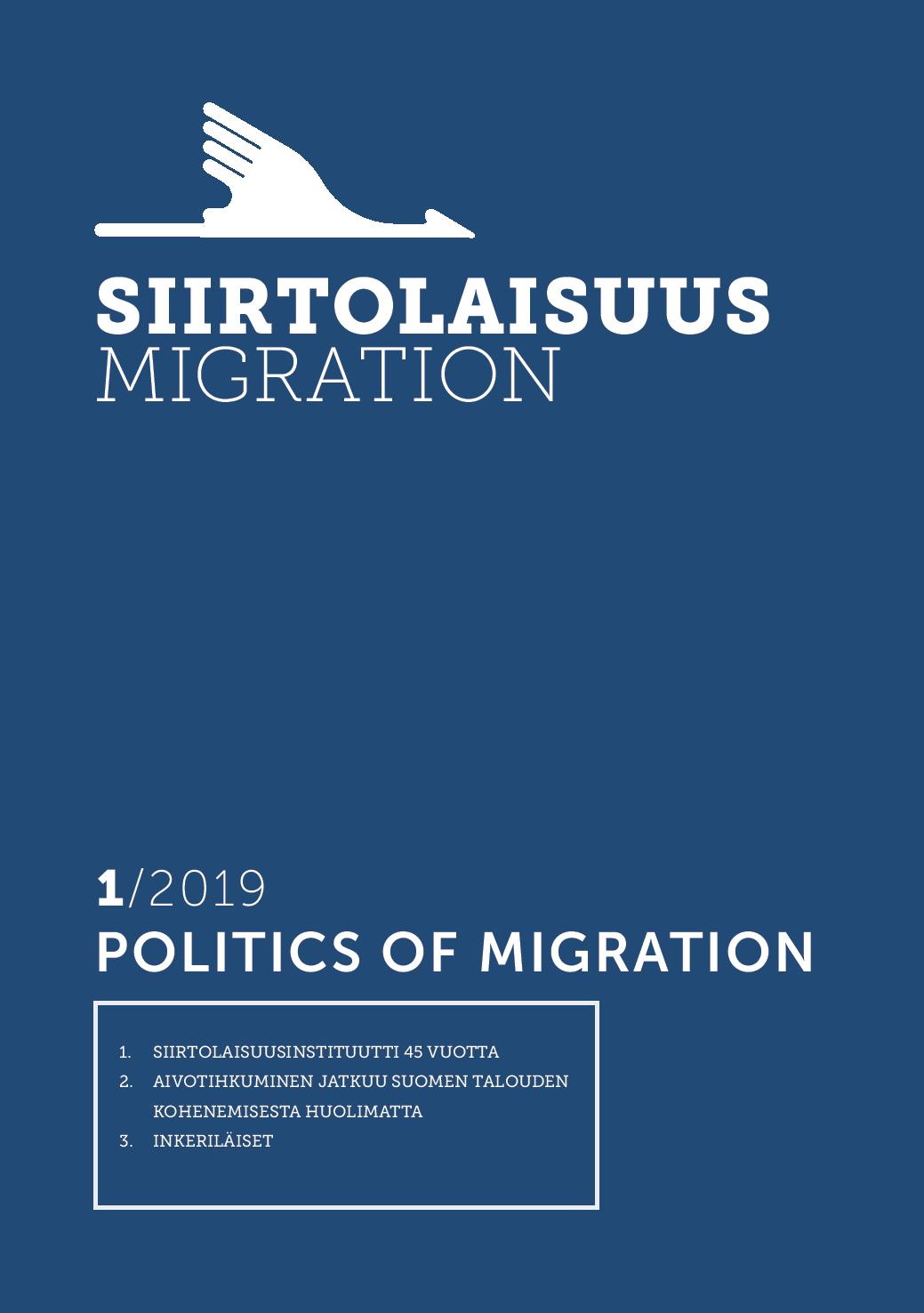Succes, failure and the relocation of risk in Europe's "fight against irregular migration"
Avainsanat:
borders, irregular migration, risk, security, securitisationAbstrakti
This paper offers some brief comparative notes on the political economy of border controls. Based on ethnographic research on European border security, it argues that while attempts to ‘combat’ migration via patrols, fences and crackdowns in ‘third countries’ have frequently failed on their own terms, they have also proved rather successful for the political and institutional actors that stand to benefit from them. Building on recent comparative analysis by the authors, the paper further considers how the security paradigm for ‘fighting migration’ exhibits parallels to the ‘war on terror’ and the ‘war on drugs’, both as concerns their destructive consequences and their manifold political and financial gains. This comparative approach to systems of ‘securitised’ intervention reveals how vested interests have helped perpetuate counterproductive approaches, as well as how risks (including that of human suffering) have routinely been exported into geographical ‘buffer zones’. In exploring these dynamics, the paper puts focus on collaborations between Western states instigating intervention and poorer ‘partner states,’ showing how a skewed distribution of risk may tilt interventions in the instigators’ favour while maintaining ‘skin in the game’ for less powerful actors. The paper concludes that such a systemic understanding of costs, risks and gains may open up policy space for a rethinking of the destructive security approach seen today at and beyond the borders of Europe.




